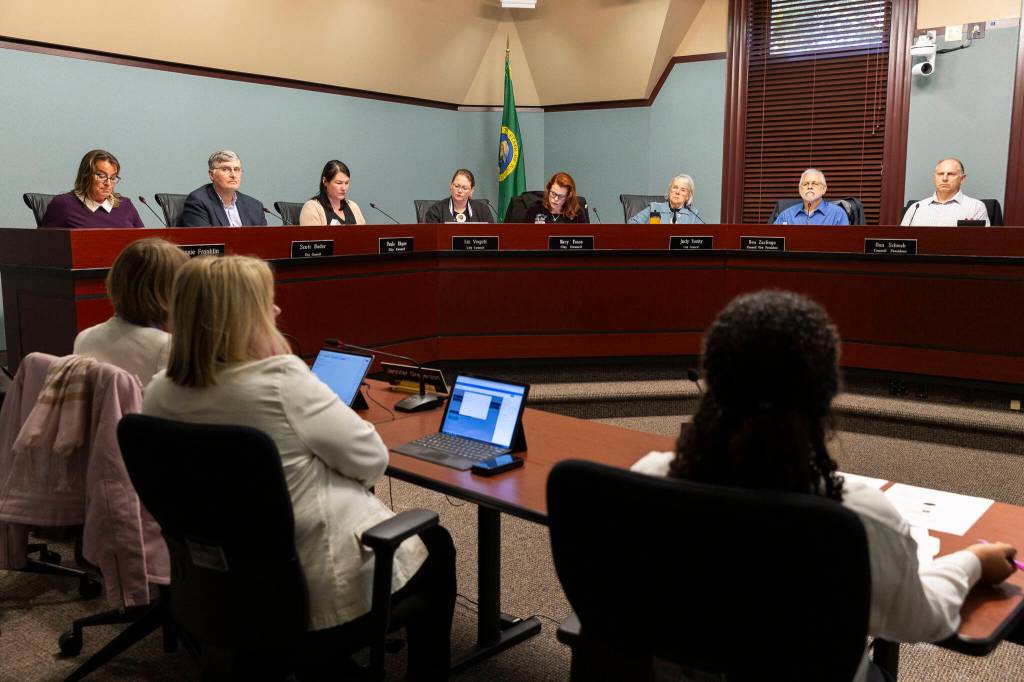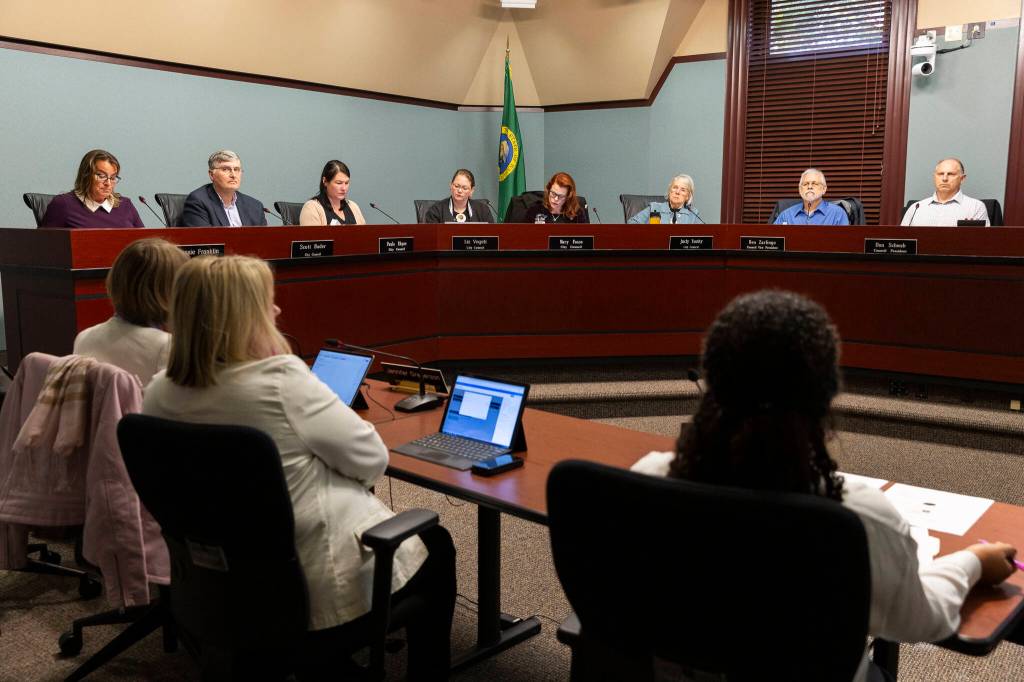Everett approves $613 million budget for 2026
Published 2:14 pm Thursday, November 20, 2025


EVERETT — The Everett City Council unanimously approved a $613 million budget for 2026 on Wednesday, pausing some pension contributions and using one-time funds to prevent staffing cuts.
No city employees will be laid off after budget cuts last year saw 31 people lose their jobs and others furloughed. The service cuts the city made for the 2025 budget, which included reductions of library hours and the elimination of the city’s park ranger program, will remain in place through 2026, as Everett continues to cut spending amid an ongoing structural deficit.
The city closed a looming $7.9 million budget gap in its 2026 budget mostly by pausing contributions to LEOFF 1 pensions — a pension available to police and firefighters hired before Oct. 1, 1977 — and through the injection of nearly $5 million in one-time COVID relief dollars into the general fund. Other reductions included cuts to maintenance and operation budgets, lower general fund contributions to street repair work and cuts to human needs grants.
The city’s general fund spending, which goes toward essential city services, will total $176.7 million in 2026, according to the budget. Everett’s complete budget, including non-general spending on services like utilities and transit, will be $612.7 million. General fund dollars are primarily raised via property, sales, and business and occupation taxes. Non-general government services are separate from the general fund and get their revenues via fees, grants, and utility, water and sewer rates.
During Wednesday’s meeting, City Council members also approved a 1% increase in its property tax levy rate for 2026, the maximum allowed after a 2001 ballot initiative restricted how much cities could increase property taxes without voter approval. Everett, like many municipalities throughout the state, has struggled to keep up with expenses since the initiative was approved, as its most consistent source of revenue can’t grow at the rate of inflation, even when the economy is healthy.
In 2024, Everett went to voters for a property tax levy lid lift, which would have increased the city’s property tax levy rate from $1.52 per $1,000 of assessed value to $2.19 per $1,000, a jump of about $336 per year for the average homeowner, according to the city. Voters resoundingly rejected the levy and the city made deep cuts to close the looming $12.6 million deficit.
This year’s budget represented the next stage of a “two-year plan,” said Ben Zarlingo, implemented after the levy lid lift failed, as a way to prevent two successive years of significant cuts. Everett mayor Cassie Franklin previously said that staffing cuts would not be necessary this year due to the more significant cuts made in the 2025 budget.
“What we are doing here is largely in line with what was planned, so it was more gradual, more linear, more predictable, Zarlingo said Wednesday.
Council member Paula Rhyne said Everett is a “full-service city operating with only partial funding,” and that continued reductions to the budget are not sustainable. She said the city needs to “reconsider reliable revenue options” to prevent further cuts.
“It’s important for me to share with the public that making the budget balanced isn’t about trimming excess, because there’s no excess left to trim and there hasn’t been for a decade or so,” Rhyne said Wednesday. “Many of the programs and cuts over the past years are cuts to the very services that make our city vibrant and livable, and this continual underfunding and elimination of programs and staff over these last few years continues to have real impacts to Everett residents.”
Next year, Everett will have to contend with yet another potential deficit, according to city projections. As the city prepares the 2027 budget, it will have to close a $14 million gap. Potential options to close that deficit could include regionalizing services like libraries and firefighting, cutting certain services entirely, or going for another property tax levy lid lift.
“We’re going to try and stay positive, because Everett is a great city, it’s got great people, and I’m confident that we’re going to come up with a solution,” council president Don Schwab said Wednesday.
Will Geschke: 425-339-3443; william.geschke@heraldnet.com; X: @willgeschke.






